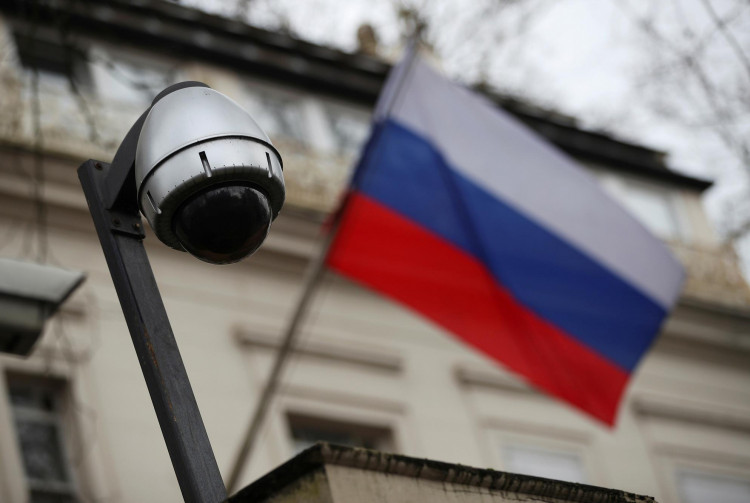A Russian court has sentenced Wall Street Journal reporter Evan Gershkovich to 16 years in prison on espionage charges. The 32-year-old journalist, accused of gathering secret information during a reporting trip in Yekaterinburg, has steadfastly denied the charges, along with his employer, The Wall Street Journal.
The court found Gershkovich guilty of "gathering secret information" about Uralvagonzavod, a plant that produces and repairs military equipment, allegedly on orders from the CIA. This accusation led to a protracted legal battle that culminated in Friday's sentencing.
"Evan's wrongful detention has been an outrage since his unjust arrest 477 days ago, and it must end now," stated The Wall Street Journal. "Even as Russia orchestrates its shameful sham trial, we continue to do everything we can to push for Evan's immediate release and to state unequivocally: Evan was doing his job as a journalist, and journalism is not a crime. Bring him home now."
The U.S. government has classified Gershkovich as "wrongfully detained" and is pursuing diplomatic channels for his immediate release. His conviction marks the first time a Western journalist has been accused of espionage in post-Soviet Russia, raising alarms about the safety and freedom of the press in the region.
It’s Friday July 19, 2024.
WSJ’s Evan Gershkovich was detained by the Russian FSB Mar 29, 2023. 1 year & 111 days ago
HE WAS JUST “CONVICTED” AND SENTENCED TO 16 YEARS IN A SHAM TRIALhttps://t.co/W4GFHd5RVD
JOURNALISM IS NOT A CRIME!
FREE EVAN NOW! #IStandWithEvan pic.twitter.com/9OmjTJ5uHe — Jake Tapper (@jaketapper) July 19, 2024
Russian President Vladimir Putin has hinted at the possibility of a prisoner swap involving Gershkovich and Vadim Krasikov, a Russian national serving a life sentence in Germany for the 2019 murder of a Georgian citizen. This case, widely seen as politically motivated, echoes the heightened tensions between the U.S. and Russia, particularly since the onset of the Ukraine conflict.
During the closed-door proceedings, Gershkovich did not admit guilt, maintaining his innocence throughout. His trial, like many espionage and treason cases in Russia, was shrouded in secrecy, and access to the courtroom was heavily restricted.
The verdict has sparked criticism from various quarters, including U.S. officials and human rights organizations. "We have been clear from the get-go that Evan did nothing wrong and should not have been detained. To date, Russia has provided no evidence of a crime and has failed to justify Evan's continued detention," stated Vedant Patel, State Department deputy spokesperson.
Russian courts are notorious for their high conviction rates, often exceeding 99%, and the country's broad interpretation of espionage and treason laws has led to numerous arrests of individuals sharing publicly available information with foreigners.
The case has heightened concerns about press freedom and the treatment of journalists in Russia. "Evan has never been employed by the United States government. Evan is not a spy. Journalism is not a crime. And Evan should never have been detained in the first place," said John Kirby, White House national security spokesperson.
Gershkovich's arrest in March 2023, while on a reporting assignment in Yekaterinburg, came as a shock to the journalistic community. The charges, which have been widely condemned as baseless, accuse him of espionage for collecting information on Uralvagonzavod for the CIA-a claim for which Russia has provided no evidence.
Since his arrest, Gershkovich has been held in Moscow's Lefortovo Prison, a facility notorious for its harsh conditions and association with high-profile political prisoners. His sentence has prompted calls for his release from international bodies, including the United Nations, which recently declared that Russia's detention of Gershkovich violates international law and demanded his immediate release.
The U.S. has indicated that it is open to discussions about a potential prisoner swap, although such negotiations are complex and time-consuming. "We're discussing these issues through special services," said Russian Foreign Minister Sergey Lavrov, hinting at ongoing behind-the-scenes negotiations.




